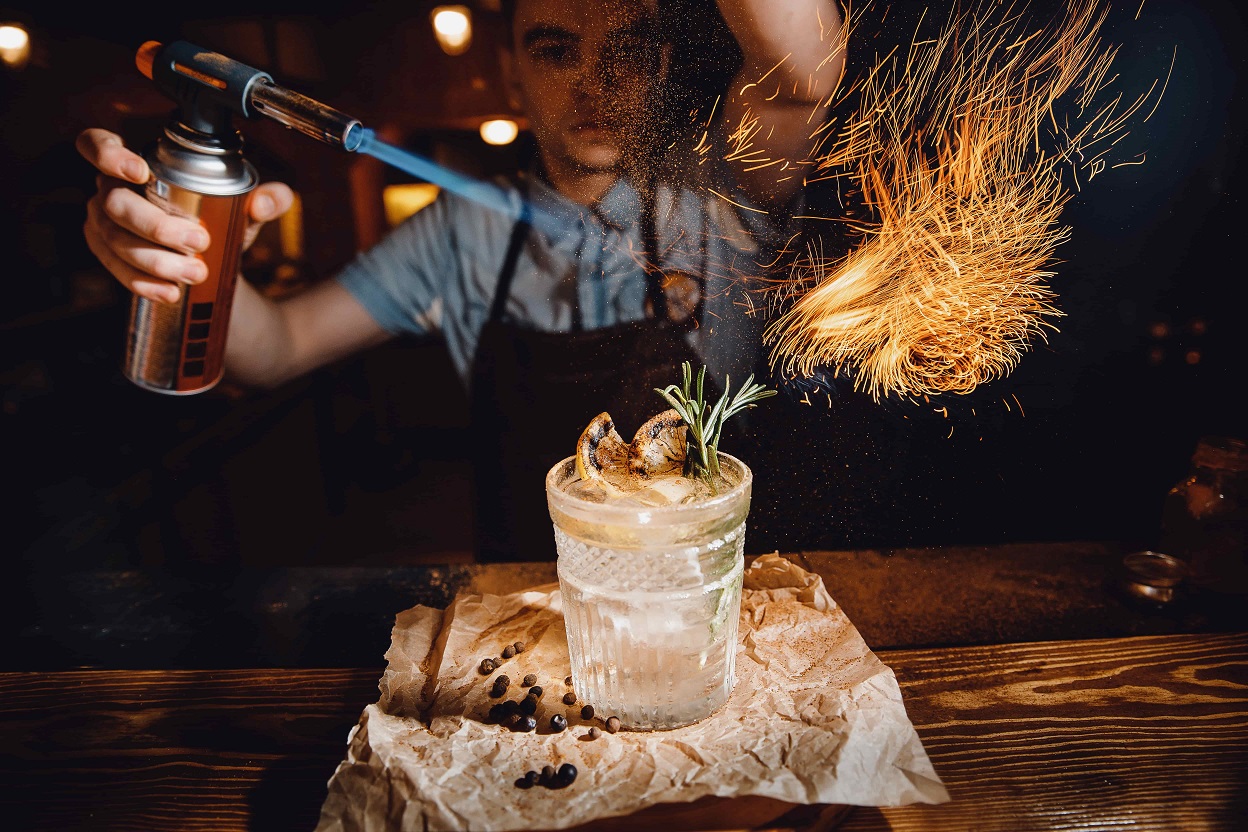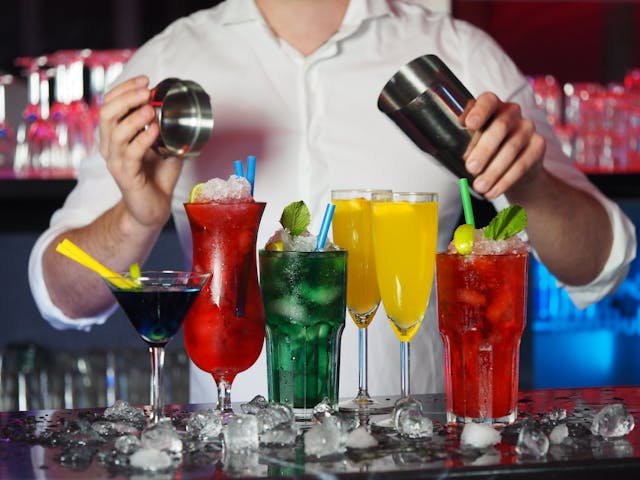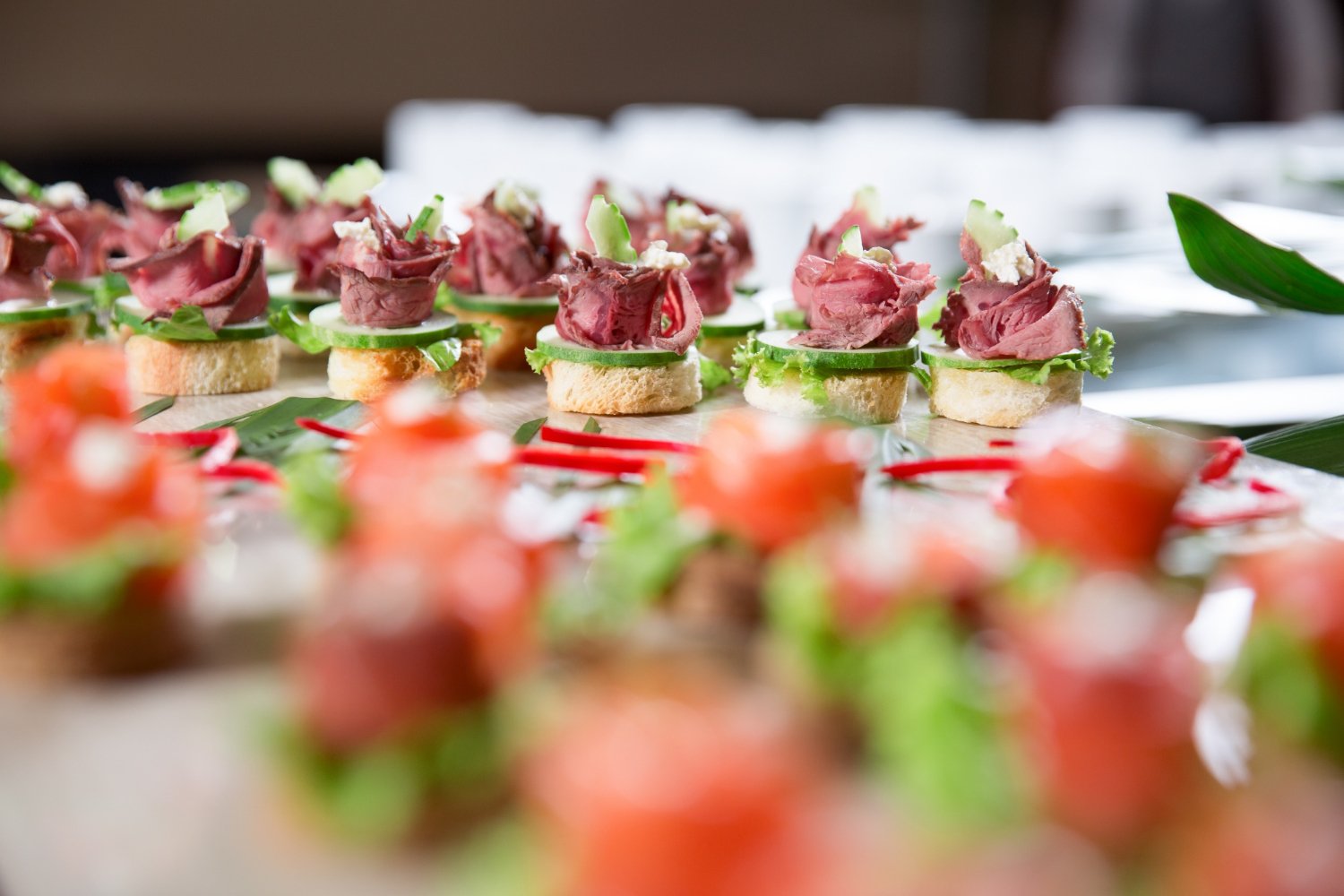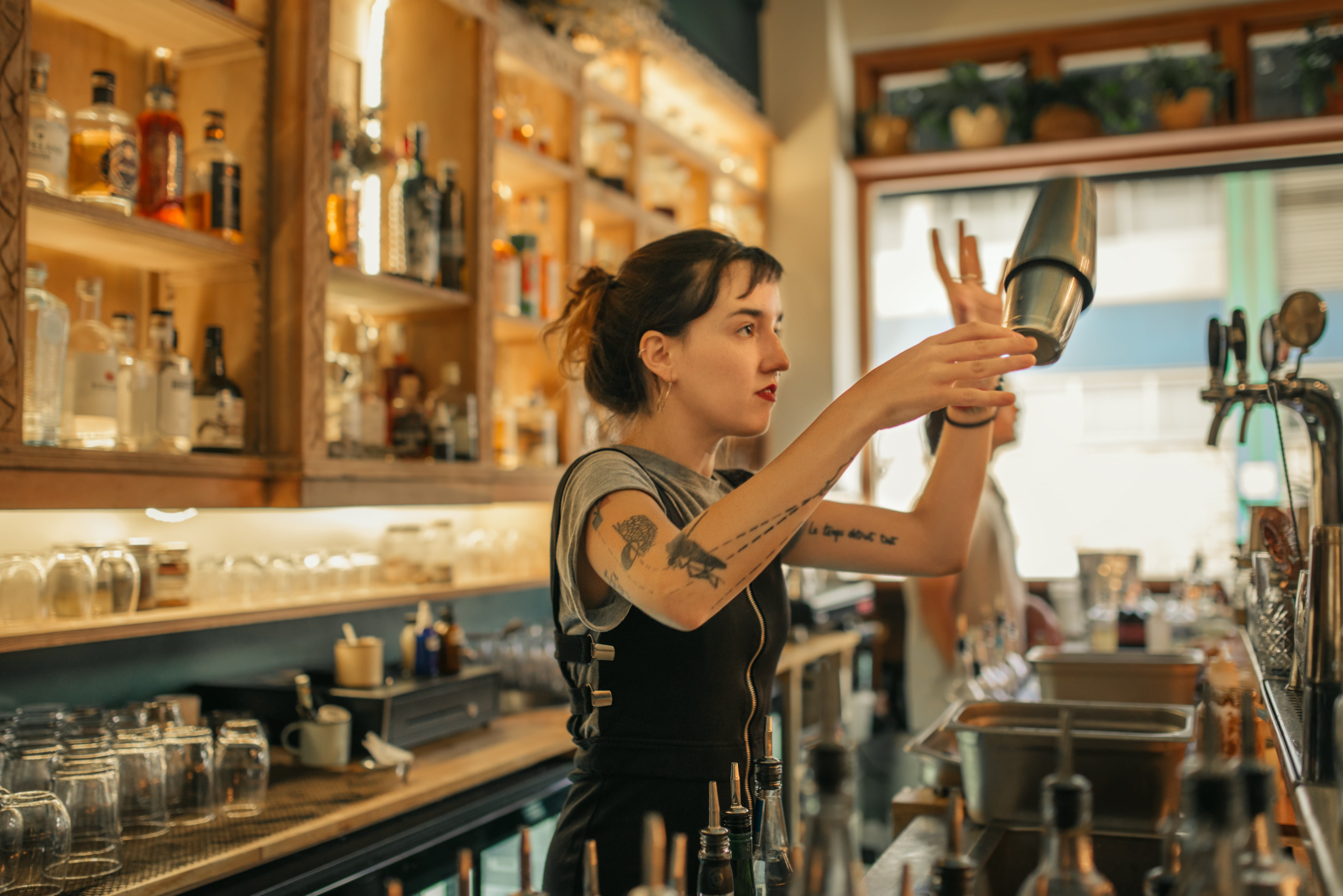What is a Mixologist and How to Become One?

Key points:
- A mixologist is a creative expert who invents new cocktail recipes and has a deep knowledge of ingredients.
- Mixologists use special techniques and often create their own components, such as syrups or foams.
- The role goes beyond simple mixing; mixologists act as “bar chefs” who focus on the art and science of cocktail making.
- Unlike a general bartender, a mixologist specializes in crafting inventive, complex, and visually appealing drinks.
The world of food and beverage is constantly changing, and one term that has become more popular in recent years is “mixologist.” A mixologist is not just a bartender who makes drinks. A mixologist is a creative expert who invents new recipes, uses special techniques and tools, and makes their own ingredients such as syrups, dusts, or foams. This article will explain what a mixologist is, what they do, how they differ from a bartender, whether mixology is a real profession, the basics of mixology, and how to become a skilled mixologist.
Table of Contents:
- What is a Mixologist?
- What does a Mixologist do?
- Mixologist vs. Bartender: Unraveling the Differences
- Is a Mixologist a Real Job?
- Guide on How to Become a Mixologist
- Is It Hard to Become a Mixologist?
What is a Mixologist? Meaning
Also known as a bar chef, a mixologist studies the history of cocktails and the science of cocktail making. A mixologist can create new cocktail recipes and has the experience to make complex, sophisticated, and visually appealing cocktails that elevate the drinking experience to an art form. A mixologist must have a deep knowledge of spirits, liqueurs, bitters, syrups, and other ingredients. They can create their own components from scratch using various culinary techniques and special spices for cocktails.
What does a Mixologist do?
The role of a mixologist goes beyond simply pouring and mixing ingredients. They are storytellers who use flavors, colors, and presentations to tell stories through their drinks. A mixologist must also have an acute understanding of the science of mixology, knowing how different ingredients interact to create harmonious and balanced flavor profiles.
In addition to their creative prowess, a mixologist is often responsible for curating an impressive selection of spirits, bitters, and other ingredients at their workplace. They often collaborate with kitchen staff to ensure their cocktail menu complements the culinary offerings, creating a harmonious guest dining experience.
Mixologist vs. Bartender: Unraveling the Differences
While mixologist and bartender are often used interchangeably, the two roles have some notable differences. As mentioned, a mixologist specializes in creating inventive and complex cocktails and developing new recipes. On the other hand, a bartender typically handles the overall service of beverages, including the preparation of cocktails, pouring beers, and serving wines. It is worth noting that mixologists and bartenders‘ roles require a strong knowledge of spirits, recipes, and drink preparation techniques.
Is a Mixologist a Real Job?
Absolutely! A mixologist is a real job that requires passion, creativity, and knowledge. However, it is not a formal or regulated profession, so no specific qualifications or certifications are needed to become one. Bars, restaurants, and liquor brands seek skilled mixologists to develop signature cocktail recipes that set them apart from competitors. As mixology gains recognition as a legitimate profession, cocktail festivals with seminars and specialized courses have emerged to provide aspiring mixologists with the necessary knowledge and skills to thrive in the industry.
The Basics of Mixology
- Spirits and ingredients: Different types of spirits are used as the main or supporting ingredients of cocktails. They can be classified into categories based on their origin, flavor, or alcohol content. For example, whiskey is a type of liquor that is usually made from fermented grains and is aged in oak barrels. At the same time, vodka is a type of liquor usually made from distilled potatoes or grains and has a neutral flavor. Understanding the characteristics of each spirit and how they interact with other ingredients is crucial.
- Cocktail categories and recipes: Different cocktails fall into categories such as sours, fizzes, flips, and highballs. Knowing the unique features of each category and the classic recipes within them provides a solid foundation for creating original drinks. For example, sour cocktails are shaken and typically consist of liquor, citrus juice, simple syrup or another sweet ingredient, and an egg white. On the other hand, stirred cocktails tend to be strong as those are made with spirits alone, without any juice.
- Techniques: To achieve unique flavor profiles and eye-catching presentations, mixologists must be skilled in shaking, stirring, muddling, torching, layering, infusing, smoking, and more.
- Glassware types: Different types of glasses are used for different cocktails, depending on the size, shape, and style of the drink. For example, martini glasses are used for cocktails served without ice. In contrast, highball glasses are usually used for fizzy cocktails served with ice.
Guide on How to Become a Mixologist
Becoming a mixologist requires dedication, passion, and a commitment to continuous learning. Here are the steps to kickstart your journey as a mixologist:
- Study Mixology: Attend cocktail festivals such as Tales of The Cocktail and enroll in seminars to learn the history, techniques, and science behind crafting cocktails. Enroll in reputable mixology courses such as Beverage Alcohol Resource. Read books written by industry leaders. Familiarize yourself with classic recipes and experiment with new flavor combinations and techniques.
- Gain Experience: Try to find a job in a craft cocktail bar or a restaurant with a complex bar program to gain hands-on experience and refine your skills. If you are a beginner, you might have to start as a barback to learn the ropes of the industry and then transition into a bartender role to become a mixologist.
- Build a Portfolio: Create a portfolio of your original cocktail creations, complete with photos and detailed recipes. Create your own website and showcase your creativity regularly on social media outlets. This attracts potential employers or clients, such as liquor brands that hire mixology consultants.
- Network and Collaborate: Attend industry events, tastings and participate in cocktail competitions to connect with fellow mixologists and professionals in the field. Collaborating with others can open doors to exciting opportunities.
Is It Hard to Become a Mixologist?
Becoming a skilled mixologist requires dedication and perseverance. The journey might be challenging, especially when mastering complex techniques and learning how ingredients interact while creating innovative flavor profiles. However, with passion, practice, and a thirst for knowledge, aspiring mixologists can overcome obstacles and carve a successful career in the fascinating world of spirits and cocktail making.
In conclusion, a mixologist is a true cocktail artist that can craft unforgettable experiences. Aspiring mixologists can make their mark in this growing industry by mastering the basics of mixology, gaining practical experience, building a portfolio, networking with industry peers, and continuously expanding their knowledge. With determination and passion, one can step into the spotlight and create a legacy of exceptional libations, forever shaping the world of mixology. Cheers to your journey as a mixologist!
Frequently Asked Questions
Check out the most frequently asked questions about becoming a mixologist!
What is a mixologist, and what do they do?
A mixologist, often referred to as a bar chef, is a skilled professional in the realm of cocktails. Beyond traditional bartending, a mixologist crafts inventive and complex drink recipes. They exhibit their expertise not only in spirits, techniques, and ingredients but also by creating their own components from the ground up, employing a variety of culinary techniques. Mixologists often use flavors, colors, and presentations to tell stories, resulting in a fusion of scientific understanding and artistic expression that enhances the overall drinking experience.
How can I become a mixologist? Are there any specific qualifications or training required?
To become a mixologist, you can follow these steps:
- Education and Training: Attend cocktail festivals, workshops, and seminars to learn about the art and science of mixology. Consider enrolling in specialized mixology courses to build a strong foundation.
- Hands-On Experience: Gain practical experience by working in bars or establishments with a focus on cocktails. Starting as a barback or bartender’s assistant can help you learn the ropes.
- Develop Skills: Hone your skills in crafting cocktails, understanding flavor combinations, and utilizing various techniques like shaking, stirring, and garnishing.
- Create a Portfolio: Document your cocktail creations, complete with recipes and photos. Building a portfolio demonstrates your creativity and expertise.
- Networking: Attend industry events, connect with other mixologists, and engage in discussions to stay updated on trends and techniques.
As for qualifications, there are no specific requirements. However, having a solid mixology education and practical experience greatly enhance your prospects. The mixology field values passion, creativity, and dedication more than formal qualifications.
What are some essential skills and attributes needed to excel as a mixologist?
To excel as a mixologist, essential skills and attributes include creativity in crafting unique recipes, meticulous attention to detail, a deep understanding of flavor profiles, proficiency in mixing techniques, comprehensive ingredient knowledge, adaptability to customer preferences, strong customer service abilities, effective time management, an aesthetic sense for presentation, a commitment to continuous learning, and excellent communication skills. While no specific qualifications are required, honing these qualities will contribute to becoming a successful mixologist.




